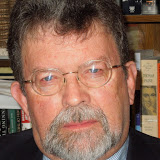From his perspective as a professor of economics, Mr. Hossein-Zadeh sees two powerful groups of U.S. political elites jousting for power, the parasitic militarists and the neoliberals, who primarily represent the interests of nonmilitary transnational capital. "In essence, it is a conflict between parasitic military imperialism, which relies on war and international political tension in order to justify the colossal existence of an overextended military-industrial complex, and free trade imperialism, which relies on free trade and technological superiority for international economic gains." [pp. 236-37]
Although militarism usually prevails, both sets of elites have "diligently made it certain that increases in the Pentagon budget would not divert investable resources away from the nonmilitary private sector." In fact, "increases in U.S. military spending since the early 1980s have been accompanied by decreases in taxes on corporate profits and higher earnings." [p. 215]
Thus, in essence, parasitic militarism grows at the expense of social or nonmilitary public spending. It's a case of guns and butter. The growth of parasitic militarism "crowds out" spending for both human capital (health care, education, nutrition and housing) and physical capital (roads, bridges, mass transit, schools, drinking water, wastewater, dams, solid waste, hazardous waste, navigable waterways and energy). Thus, while the Bush administration spent much of 2001 pushing to build an enormously expensive (and still unworkable) boondoggle that is near and dear to the hearts of many defense contractors, national missile defense, the 2001 "Report Card for America's Infrastructure" issued by the American Society of Civil Engineers gave a grade of D+ to the 11 infrastructure categories listed above, plus aviation. [p. 222]
According to Professor Hossein-Zadeh, sustained increases in defense spending are "financed primarily by sustained cuts in nonmilitary public spending." And he observes: "Opponents of social spending tend to justify these policies in terms of market mechanism: that all they want is to keep 'government's hands out of people's pocket[s], and to let the 'invisible hand of the market mechanism' regulate the economy. Yet, the twin policy of tax break[s] for the wealthy and the lion's share of public money for military industries seems more akin to an iron fist that is designed to redistribute national resources to favor the wealthy than the invisible hand of market mechanism." [p. 226]
Unfortunately, absent popular pressure to tax the rich and adequately fund social programs, [p. 256] Hossein-Zadeh can offer only this weak admonition: "A disproportionately large and escalating military apparatus tends to undermine the socioeconomic and political base that is supposed to sustain the apparatus." [p. 203]
Because his focus is on the political economy of U.S. militarism, Professor Hossein-Zadeh might be forgiven for the slight attention he pays to parasitic militarism's assaults on individual liberty. But he might have summarized them by quoting from John Quincy Adams's speech of July 4, 1821: America "goes not abroad, in search of monsters to destroy. She is the well-wisher to the freedom and independence of all. She is the champion and vindicator only of her own…She well knows that by once enlisting under other banners than her own, were they even the banners of foreign independence, she would involve herself beyond the power of extrication…The fundamental maxims of her policy would insensibly change from liberty to force….She might become the dictatress of the world. She would be no longer the ruler of her own spirit." And so she isn't!
Finally, Professor Hossein-Zadeh's book probably would have gained depth and context had he familiarized himself with Paul A. C. Koistinen's prodigious four-volume history, The Political Economy of American Warfare, (covering the period 1606-1945), as well as the following indispensable studies: The Pursuit of Power (Willam H. McNeill), The Dominion of War (Fred Anderson and Andrew Clayton), Innovation and the Arms Race (Matthew Evangelista) and In the Shadow of War (Michael Sherry).
Nevertheless, The Political Economy of U.S. Militarism is a timely and provocative study, which merits far more readers than it probably will receive.
(Note: You can view every article as one long page if you sign up as an Advocate Member, or higher).





